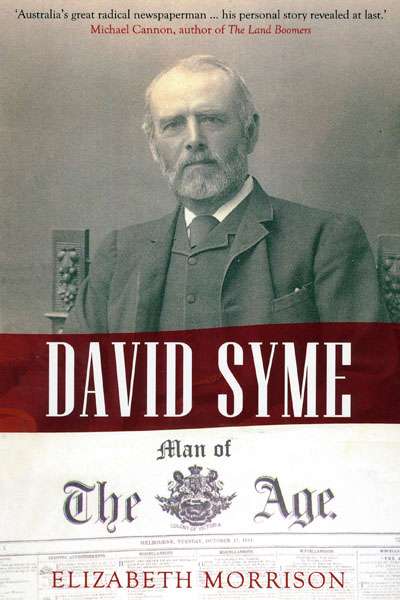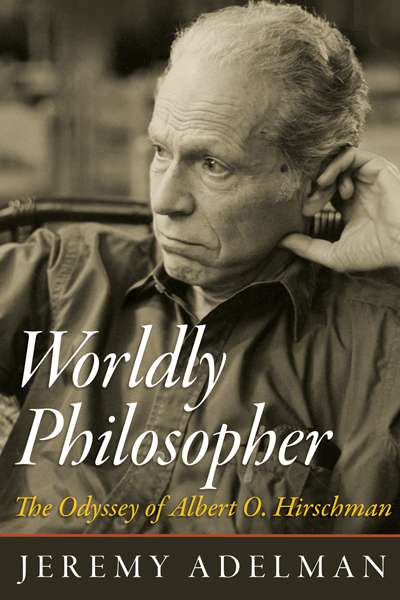Biography
Margaret and Gough: The love story that shaped a nation by Susan Mitchell
Susan Mitchell’s fifteenth book is a biography of the Whitlams, published shortly before Gough’s death in November. As a broadcaster, journalist, and author who has examined the lives of prominent Australian women, Mitchell tells the story mainly from Margaret’s perspective. This is not surprising: Mitchell had already amassed a huge body of research for her book Margaret Whitlam: A Biography (2006), and had known her since the late 1970s. And, compared to his frank and affable wife, Gough was less willing to share his personal recollections.
... (read more)The last photographs taken of Jean Galbraith show a wrinkled woman in her eighties, with wispy hair pulled back in a bun, wearing round tortoiseshell spectacles, thick stockings, and sensible shoes – the kind of person you might expect to see serving behind the counter of a country post office early last century, or pouring endless cups of tea at church fêtes. Yet her unprepossessing appearance belied the extraordinary woman within. For Australian nature lovers and botanists, Jean Galbraith was an icon. Over the seventy years of her writing career (her last article was published when she was eighty-nine), she turned botanical writing into an art form, branched into television and radio scriptwriting, wrote children’s books, lectured tirelessly on the beauty of Australia’s native flora, and became a fierce advocate for conservation. When she died in 1999, aged ninety-two, she had earned many awards and accolades, including the prestigious Australian Natural History Medallion.
... (read more)Already, Anu Singh’s story is grimly familiar. Now free again, just thirty-one, she has entered the popular pantheon of malefactors. Her attractive face appears in the newspapers, taut with self-justification. There is talk of a documentary. Notoriety, even a kind of celebrity – that amoral nirvana – is hers.
If Singh’s deepest motivation f ...
The Little Girl who Fought the Great Depression: Shirley Temple and 1930s America by John F. Kasson
Lucky Shirley Temple! Film star biographies are usually made up of a chronology laced with doubtful studio publicity and salacious gossip. But The Little Girl Who Fought the Great Depression is written by a reigning scholar of American culture, John F. Kasson. A professor of History and American Studies at the University of North Carolina at Chapel Hill, Kasson takes entertainment seriously. For more than forty years, beginning with Amusing the Million: Coney Island at the Turn of the Century (1971), he has uncovered the cultural significance of popular leisure-time activities, places, and personalities in a style that is both scholarly and entertaining. His Houdini, Tarzan and the Perfect Man: The White Male Body and the Challenge of Modernity in America (2001) used three mini-biographies to explore the ‘masculinity crisis’ of the early twentieth century. In The Little Girl, he focuses on one icon to help us see how Americans survived the Great Depression.
... (read more)Acute Misfortune: The life and death of Adam Cullen by Erik Jensen
Erik Jensen, a young journalist who now edits the Saturday Paper, has written an unusual memoir of his four years shadowing an artist – a difficult artist, it must be said (putting it euphemistically). Any new memoirist like Jensen will be interrogated umpteen times about his motivation. Such is the fascination with biography – fascination mixed with ambivalence – he will be asked about catharsis, whether the exercise was improving, enlightening, transmogrifying. In Tardises and tents the memoirist will become adept at distilling his intentions, whether they be financial or fraternal, vengeful or venerative. In Jensen’s case, this curiosity is likely to be magnified because of his intimacy with his subject and the marked decadence of the setting. This biographer’s rationale is as intriguing as that of his beleaguered subject.
... (read more)Josephine Baker and the Rainbow Tribe by Matthew Pratt Guterl
When Josephine Baker died in Paris in April 1975, it was almost fifty years since her sensational triumph in that city in 1925 as the star of La Revue Nègre. Her legendary status in France today remains linked to her emblematic role in the extraordinary unleashing of emotion and sensuality that came with the French Jazz Age and its upheaval of tradition. But her image also includes her work in the Resistance during the German Occupation, work which saved lives and assisted vital communication, earning her the Croix de Guerre, the Resistance Medal, and the Legion of Honour. Both culturally and politically she is perceived as a figure of liberation. Her experiment in adopting a large multiracial family – The ‘Rainbow Tribe’ – and raising the children in her Dordogne château, while generally shrugged off as a failed Utopian dream, and the cause of the financial ruin that necessitated her rescue by Princess Grace of Monaco, is also seen as evidence of a laudable anti-racist stance. And her humanitarian activism in the United States and South America are folded into the same positive picture of a woman who, having chosen France as her heartland, has been elected by the French as a national treasure.
... (read more)David Syme made his name and his fortune in newspapers – specifically The Age – and his life’s course might be compared with the workings of a gigantic web offset press.
I have watched such machines at work. They start off slow; the rolls of naked newsprint snake by gently, round and round. When the presses roar to life the noise is astonishing; the paper is stretched like the thinnest of skins as it flashes, smooth and furious, through the machine, soaking up words and pictures. If the paper breaks, the whole thing unravels and the run must be reset. So it was with Syme, the brilliant but perplexing man who owned and ran The Age from 1860 until his death in 1908. At its peak in the 1880s, only the London dailies had higher circulations. One in ten people in Melbourne bought a copy.
... (read more)An Unsentimental Bloke: The life and work of C.J. Dennis by Philip Butterss
Now and again it is good to remind ourselves that literary history (and I think the history of the other arts) is strewn with the names of those who had great stature in their own time and are now largely forgotten, and with the names of others for whom the reverse is true. William Blake, short of money, went to work for the much more admired poet William Hayley. These days, the name ‘William Hayley’ will only conjure up ‘Rock Around the Clock’. Even Samuel Johnson, perhaps the greatest of all literary critics, thought Abraham Cowley ‘undoubtedly the best’ of the Metaphysical poets, and it took three hundred years for John Donne’s reputation to be firmly established.
... (read more)Worldly Philosopher by Jeremy Adelman & The Essential Hirschman edited by Jeremy Adelman
Albert O. Hirschman (1915–2012) was a development economist and political theorist whose work is essential reading for anyone interested in understanding how economic life figures in the political worlds we inhabit and the ways in which we give meaning to our lives in market-based societies. Perhaps best known for the distinction between ‘exit’ and ‘voice’, Hirschman was a prolific theorist who wrote about the role individual moral virtue and individual self-interest should play in economic activity, how economic growth in the developing world might best be achieved, and the reactionary rhetoric of neo-conservative politicians in the late 1980s, to list but some of the areas he covered. Hirschman’s writing was elegant; further, he understood the importance of the well-chosen word. He was, as this new biography by Jeremy Adelman shows, an economist for whom the essays of Montaigne were as important as the writings of Ricardo and Smith.
... (read more)A Spy among Friends: Kim Philby and the Great Betrayal by Ben Macintyre
Harold Adrian Russell (Kim) Philby was the Third Man of the notorious Cambridge spy network set up in the 1930s and partially unmasked in the early 1950s, when Guy Burgess and Donald Maclean fled to Moscow. He had been in British intelligence (MI6) since the beginning of the war, but had been working for Soviet intelligence for some years before that. A high-flyer, charming and sociable, he rose rapidly as an officer in the British service and was even tipped to be the next head of MI6. After narrowly surviving the Burgess–Maclean fallout, he ended up in Beirut in the early 1960s, working as a freelance journalist for the Observer and the Economist and an agent for MI6 on the side. Son of a famous and eccentric Arabist, St John Philby, his Middle East coverage struck an old friend, Flora Solomon, as anti-Israel, and in criticising it to her old friend Victor Rothschild she mentioned that back in their youth in the 1930s he had tried to recruit her as a communist spy. Lord Rothschild passed that on to MI5, which had had it in for Philby for years, and in the new round of investigation, Philby’s own bosses in MI6 were convinced. An old friend, MI6’s Nicholas Elliott, confronted him in 1963 and obtained a partial confession, but then inexplicably left Beirut and allowed Philby to flee, courtesy of his Soviet handlers.
... (read more)









